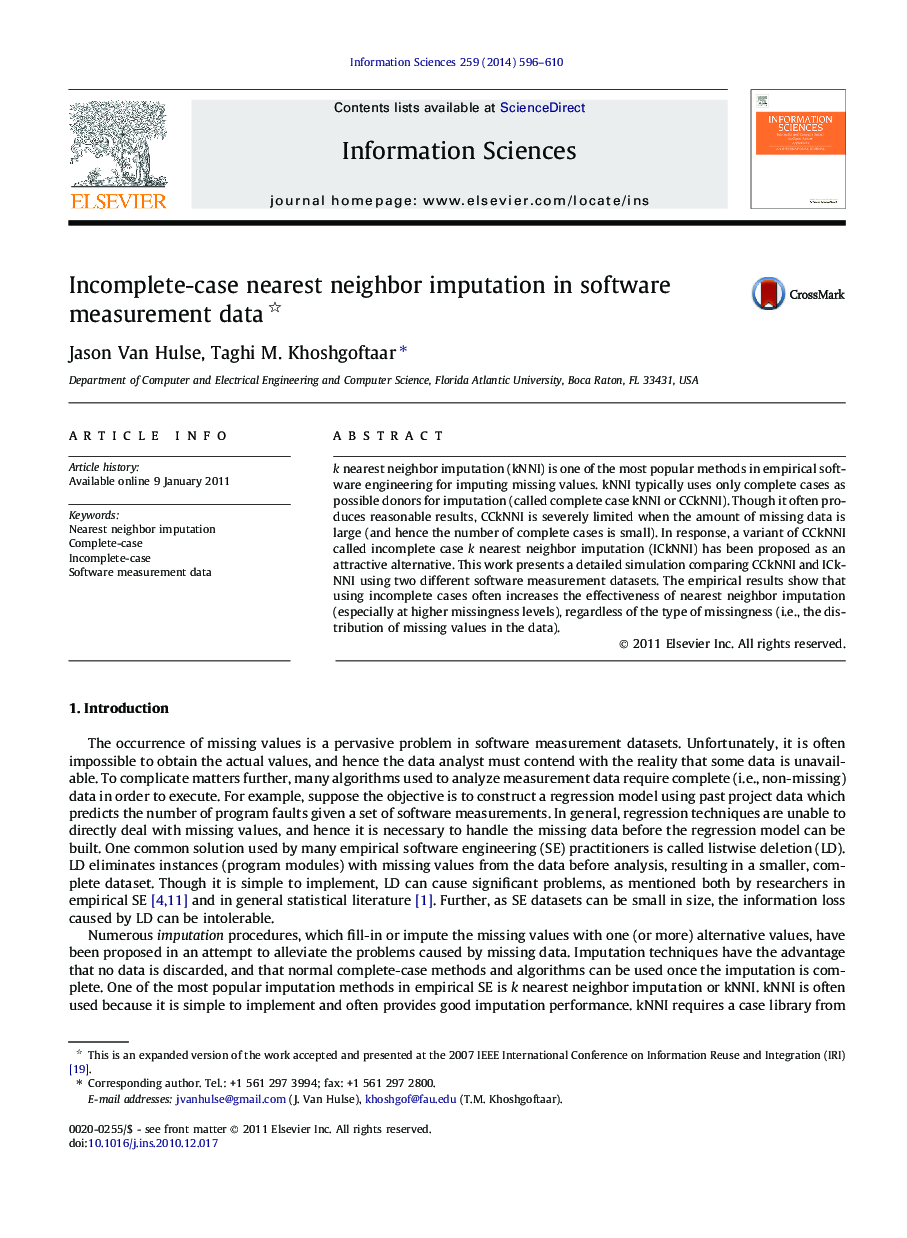| Article ID | Journal | Published Year | Pages | File Type |
|---|---|---|---|---|
| 6858567 | Information Sciences | 2014 | 15 Pages |
Abstract
k nearest neighbor imputation (kNNI) is one of the most popular methods in empirical software engineering for imputing missing values. kNNI typically uses only complete cases as possible donors for imputation (called complete case kNNI or CCkNNI). Though it often produces reasonable results, CCkNNI is severely limited when the amount of missing data is large (and hence the number of complete cases is small). In response, a variant of CCkNNI called incomplete case k nearest neighbor imputation (ICkNNI) has been proposed as an attractive alternative. This work presents a detailed simulation comparing CCkNNI and ICkNNI using two different software measurement datasets. The empirical results show that using incomplete cases often increases the effectiveness of nearest neighbor imputation (especially at higher missingness levels), regardless of the type of missingness (i.e., the distribution of missing values in the data).
Related Topics
Physical Sciences and Engineering
Computer Science
Artificial Intelligence
Authors
Jason Van Hulse, Taghi M. Khoshgoftaar,
